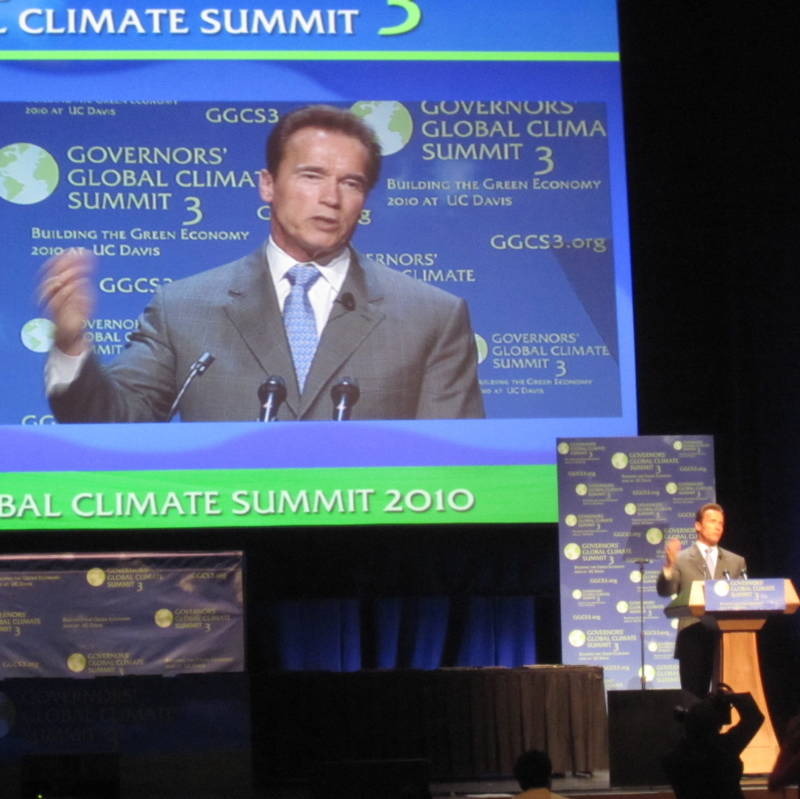In the absence of an international agreement, states and provinces commit to work together to fight climate change.

Governor Arnold Schwarzenegger’s third and final Governors’ Global Climate Summit wrapped up Tuesday with the launch of a new international coalition aimed at developing projects that cut carbon emissions around the globe. R20, or “Regions of Climate Action” is the culmination of Governor Schwarzenegger’s efforts to spur “subnational” action to address climate change.
“We can’t afford to wait for national and international movement,” he said in a press release announcing R20. “Action is needed now.”
Currently the coalition includes representatives from more than 60 state, city, and provincial governments from around the world including those in Japan, Nigeria, Rwanda, Canada, and Iceland, as well as the United States (The “20” in R20 has no particular meaning, according to members of the Governor’s staff, except to echo the concept of the “G20” nations).
Also announced at the summit Tuesday was a new partnership between California and the provinces of Acre, Brazil and Chiapas, Mexico. The effort aims to cut carbon emissions by developing forest-protection projects in tropical regions. The ultimate vision for the project is that well-monitored forestry projects in Brazil and Mexico could provide carbon offsets under California’s evolving cap-and-trade program. According to the Environmental Defense Fund (EDF), more than 15% of global greenhouse gas emissions come from deforestation.
Funding for the projects would eventually come from California companies purchasing those offsets, said Mary Nichols, head of the California Air Resources Board, the agency tasked with implementing the state’s global warming legislation, AB 32.
“We have a ways to go,” said Nichols. “First we have to develop all the accounting protocols in order to make sure that these projects are enforceable and that they can be monitored and verified, and we’re not at that point yet.”
Nichols said that there is skepticism about international carbon offsets because some projects have not turned out to be credible. Therefore, she said, it’s important to work with trusted partners to develop the “rule of law,” to make these offsets acceptable in the California marketplace.
“That means that any project that’s done in Mexico or Brazil will have to be as good as a project that was done in California in order to be credited,” Nichols added.
“It’s a real precedent-setting, historic agreement,” said Steve Schwartzman, Tropical Forests Director for EDF.
I’ll be reporting from the next round of UN climate talks, set to begin in Cancun at the end of the month. Schwartzman said this new partnership will be an important signal for the international negotiators there.
“It certainly shows that it’s possible to make concrete, substantial progress in addressing global warming, even in the absence of national policy in the United States or an international agreement,” he said.
One thought on “Regions Make Their Own Climate Stand”
Comments are closed.

Finally, “each one can make a difference” is beginning to happen – each city, state, region, nation taking action. We could all start with NO-FLY ZONES over our regions to stop the weather modification, solar radiation managment, geoengineering, chem trails spray of grid lines of barium and aluminium — massive sky pollution “raining down upon us all.”